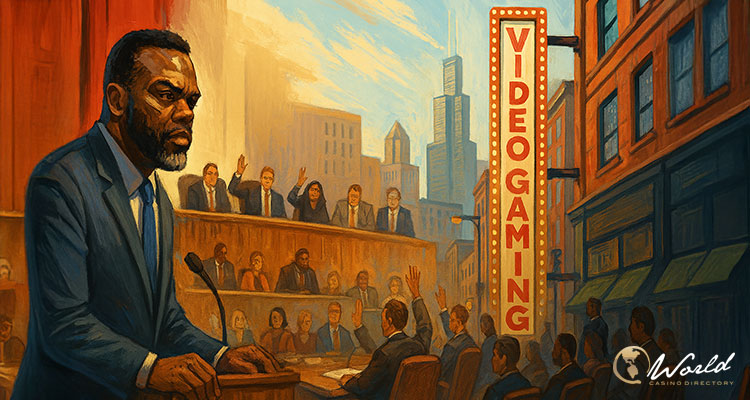A controversial plan to introduce video gaming across Chicago cleared its first hurdle this week, though it faces strong pushback from Mayor Brandon Johnson. The City Council’s License and Consumer Protection Committee voted 8-6 to support an ordinance that would lift the city’s longstanding ban on video gaming terminals. If the full Council approves the measure, thousands of establishments could soon add gaming machines to their businesses.
Ordinance Scope and Revenue Projections
The legislation, introduced by Alderman Anthony Beale of the 9th Ward, would permit up to six video gaming terminals at approximately 3,500 venues. Eligible sites include restaurants, hotels, theaters, arcades, and bowling alleys that hold liquor licenses but do not primarily depend on alcohol sales. Bars and taverns were excluded from the current draft, though Beale said he is open to revisiting that exclusion later.
Beale promoted the ordinance as a way to tap into what he estimates could be between $60 million and $100 million annually in new revenue. “Are we going to turn our blind eye on $60 million to $100 million? Or are we going to look to raise property taxes, increase ticket fees, increase garbage fees? Or are we going to [be] creative to do something a little different that the city has never done?” he told colleagues during the committee debate.
Supporters argue that allowing gaming machines would provide struggling restaurants and entertainment venues with a vital source of income, particularly as businesses continue to recover from economic pressures and mounting city fees.
Mayor Johnson has made it clear he does not back the ordinance. Facing a projected $1.15 billion budget deficit after years of shortfalls, Johnson said the proposal still fails to maximize revenue potential for the city.
“We can’t leave millions of dollars on the table. And so, whatever comes from City Council — if it doesn’t maximize the full benefit of what this opportunity could bring to the revenue structure of our city, then I’m not going to be supportive of it,” Johnson told reporters, as reported by Chicago Sun Times.
A consultant’s study commissioned by the city projected that video gaming might only generate about $10 million annually. Worse, the study suggested that the expansion could actually reduce revenue by drawing players away from the Bally’s casino under construction in River West. Slot machine revenue from the casino is taxed at nearly four times the rate applied to video gaming, raising concerns that the ordinance could undermine the casino’s contribution to the city budget.
Johnson further argued, “I have not seen where this particular idea maximizes our ability to be able to receive as many dollars as possible.”
Concerns Over Contract Obligations and Enforcement
Critics also warn the ordinance could conflict with the city’s existing agreement with Bally’s, which is investing $1.7 billion into a casino and entertainment complex. Carl Gutierrez, vice president of government relations for the Chicagoland Chamber of Commerce, called the measure a “clear violation” of the city’s contract with Bally’s. He added that disregarding the deal would “send a message” that “Chicago is not a reliable partner.”
Beyond financial implications, city officials flagged logistical challenges. Ivan Capifali, Commissioner of Business Affairs and Consumer Protection, cautioned that his department would require significant additional resources to regulate thousands of new terminals. Enforcement against illegal machines would also stretch Chicago Police Department resources.
Despite these warnings, some aldermen said the revenue potential outweighed the risks. Downtown Alderman Brendan Reilly, a longtime critic of video gaming, ultimately voted in favor. He noted that Bally’s temporary casino at Medinah Temple had been an “unmitigated disaster” and questioned whether the operator would meet state deadlines for its permanent site. “The city is strangling businesses, especially those that serve liquor, with all sorts of taxes and fees and mandates,” Reilly said.
The ordinance now heads to the full City Council, where Johnson’s opposition and concerns about contractual conflicts with Bally’s are expected to shape a contentious debate.



